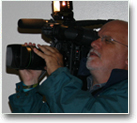
 |
  United Nation’s Food and Agriculture Organization (FAO) Selects Trent University as Partner for New ProjectFOR IMMEDIATE RELEASE Development of New Computer System to Enable Policy Makers to Evaluate Suitability of Land for Agriculture, Thursday, August 27, 2009, Peterborough The Food and Agriculture Organization (FAO) of the United Nations has selected Trent University as a partner to develop a new computer software system that will enable decision-makers to evaluate the suitability of land for a variety of actual and potential uses. The system, which is intended for use in rural land use planning projects world-wide, will be able to assist government officials and rural planners in making rational decisions concerning policies for the allocation of lands for different competing uses, such as whether to grow crops for grain production, for biofuels, or for the benefits represented by government incentives for a given crop. “The present research and development assignment represents an exciting partnership opportunity involving researchers and graduate students, and will place Trent University in a central place concerning land resources assessment for agriculture, forestry and livestock in the international arena,” says Dr. Raul Ponce-Hernandez, a professor in the Geography and the Environmental and Resource Studies programs at Trent, who will be leading the project with the FAO. “This new agreement between Trent University and FAO will also work to address the existing gap in methodologies and software tools needed to address new environmental concerns, such as climate change, and their impact on land use planning.” Starting in September 2009, Professor Ponce-Hernandez will lead the initial phase of the project as well as the gathering of system requirements through the FAO’s Applied Geomatics, Remote Sensing and Land Resources Laboratory. To date, he has achieved part of the work of this initial phase at FAO of UN headquarters in Rome in July, at the invitation of the FAO. The FAO is providing a financial contribution of $63,000 (US) for the partnership with Trent, which will support the research, development and production of an automated land evaluation system based on the Agro-Ecological Zoning approach that allows for optimization procedures for land use decisions at country level, for land use planning purposes. The automation of the land evaluation system will consist of a computer programme (i.e. “software”) and the production of the software documentation and the software user manual. The system to be developed will be for application by UN-country members in projects world-wide and will include procedures for addressing contemporary issues concerning land management such as carbon sequestration in agricultural lands for the mitigation of climate change, and the possible payment schemes to farmers for other environmental services, such as protection of biodiversity and prevention of land degradation. According to Prof. Ponce-Hernandez, the project is of particular importance because of a growing need to look at alternative uses of land such as those related to soil carbon sequestration, the growing of crop for bio-fuels and the possible competing demands for lands which these land uses may bring. In this context, the availability of sound scientific methods for land suitability assessment is an important part. Trent University through the Applied Geomatics Laboratory (GEORESLAR) had developed a long-standing working relationship with FAO of the UN that dates back to 1994, when the GEORESLAR then developed methodology and results for FAO on Ecologic and Economic Zoning of the Amazon basing through the Amazon Cooperation Treaty. -30- For more information, please contact: |
































